Industry
Series-Manufactured Krab Howitzers in Service
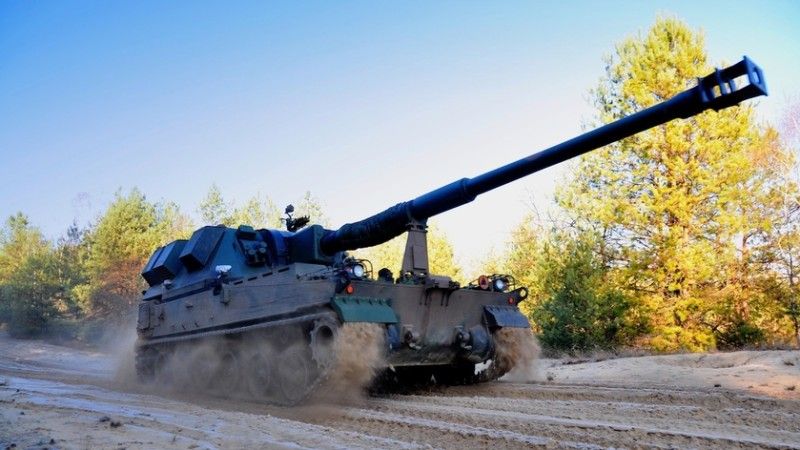
HSW S.A. is sending more modern artillery platforms to the end-users. Handing off of the second battery belonging to the first series-manufactured (and to the second one in general) Regina Squadron-level Fire Module (DMO) has been finalized just recently. Regina modules make use of the Krab self-propelled howitzers. This is a good occasion to have a closer look at the programme.
Recently, two groups of artillerymen from two batteries of the 2nd Self-Propelled Artillery Squadron of the 5th Artillery Regiment were involved in a live-fire training in Nowa Dęba, taking place during the two weeks of May. The training has also seen involvement on the part of instructors hailing from the Toruń-based Artillery and Armament Training Centre. Not only did HSW S.A. provide instruction support, but it also delivered the equipment for the second 155 mm sphs battery. The equipment for the first battery has been received on 16th March, in line with the schedule. Since then, Polish Krab, WD command vehicle, WDSz command-staff vehicle, WA ammunition carrier and WRUE ARV crews have been involved in an intensive training programme.
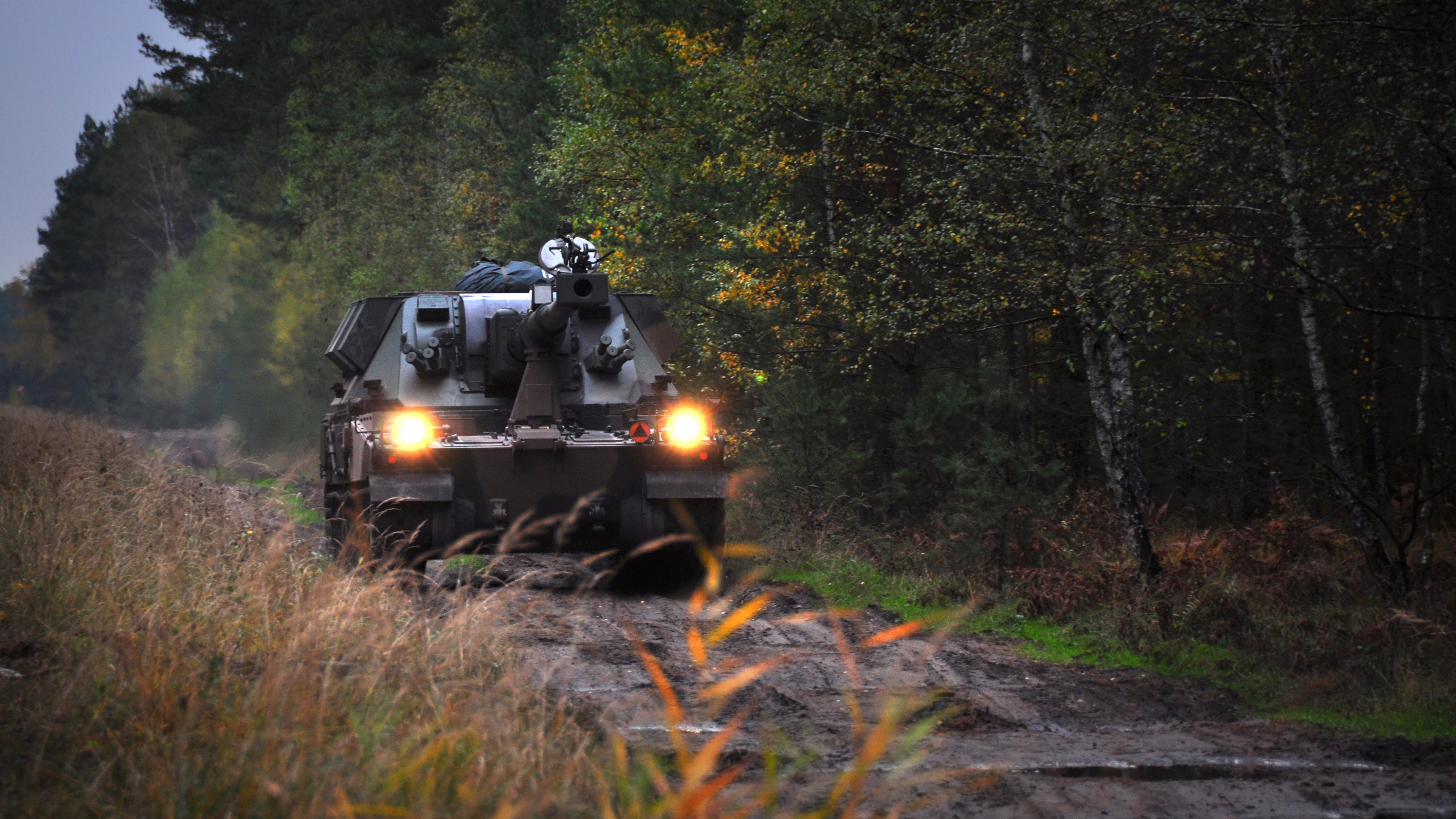
Before the equipment was handed off, the soldiers had gone through training at the manufacturer’s HQ. Here they could have got acquainted with the vehicles in the final assembly stage. The platforms mentioned above would become the equipment for the battery number three. Following the March delivery, HSW S.A. still had to deliver 16 Krab, 7 WDSz and WD and 4 WA platforms to Sulechów. Half of that equipment pool was transferred to the 5th Artillery Regiment via the means of two convoys that have left the facility a few days ago. 8 Krab howitzers, 2 command vehicles and a single ammunition carrier left Stalowa Wola on Monday, 17th June. The second convoy finalizing the delivery left the facility a few days later. Following the handing off procedures, official reception of the equipment was planned to happen in the late June. The equipment for battery number three would be delivered in October.
This means that 25% of the December 2016 agreement would be completed. The agreement itself covers delivery worth 4.7 billion zlotys, including four Regina modules: 96 Krab howitzers, 12 WDSz platforms, 32 WD platforms, 24 ammunition carriers and 4 WRUE ARVs. 168 units in total. Alongside the SPHs and command vehicles using the HSW LPG platform as their foundation, the wheeled components make use of the Jelcz S.A. products. Jelcz is owned, in 100%, by HSW S.A.
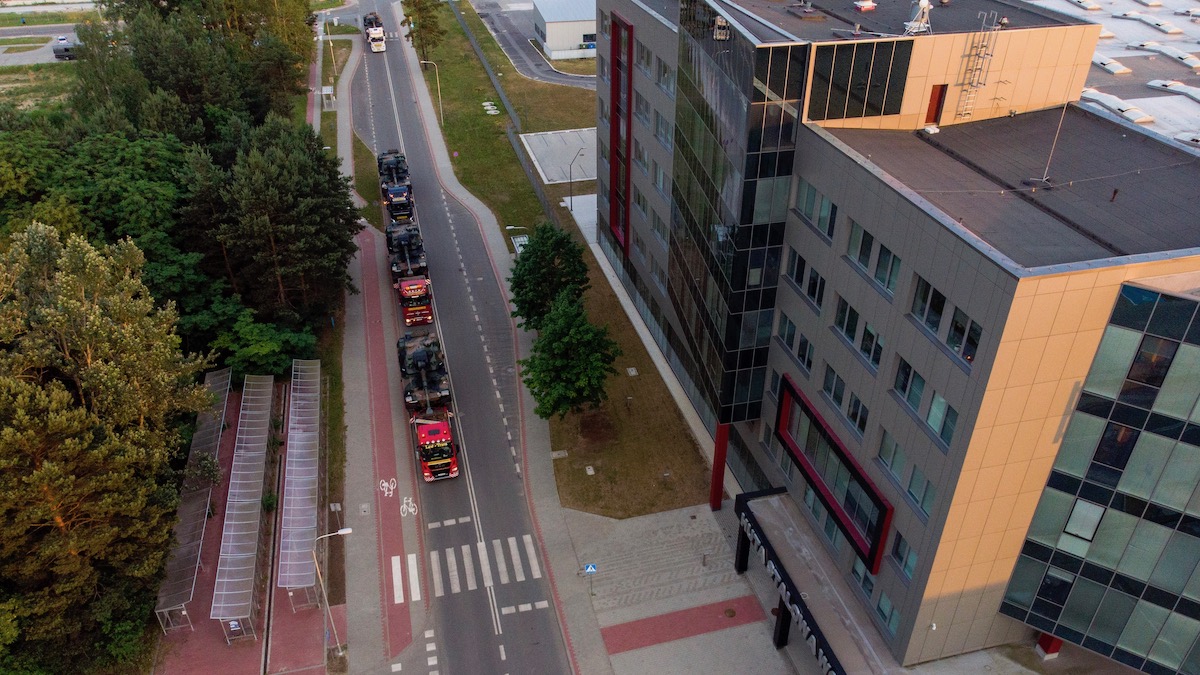
By 2022 equipment for another two DMO modules should be delivered. Delivery of the vehicles for the fourth and last of the contracted Regina squadrons is scheduled to happen in 2023 and 2024, as the contract stipulates. The military is to receive two 8-sph batteries per annum. However, the above would not necessarily be limited by the HSW’s manufacturing capacity, but rather by the Armed Forces’ ability to prepare the infrastructure at the units waiting to receive the equipment, tempo of crew training, adjustment of the supply chain (including the scope pertaining to ammunition), or acquisition of transporter sets that could be used to carry the equipment to training areas.
Read more: Krab Howitzers Headed to Sulechów
It remains an open question however, as to what pace would apply to deliveries of the Regina modules after 2024. Undoubtedly, the Polish military needs more of these systems. Not only does the above apply to the newly formed 18th Division that is to include an artillery regiment, but also to the existing units. Even after the current contract is finalized, many of the brigade-level artillery squadrons would still be operating the 2S1 Gvozdika howitzers. And these platforms would also need to be gradually replaced by the new 155 mm systems in the upcoming years.
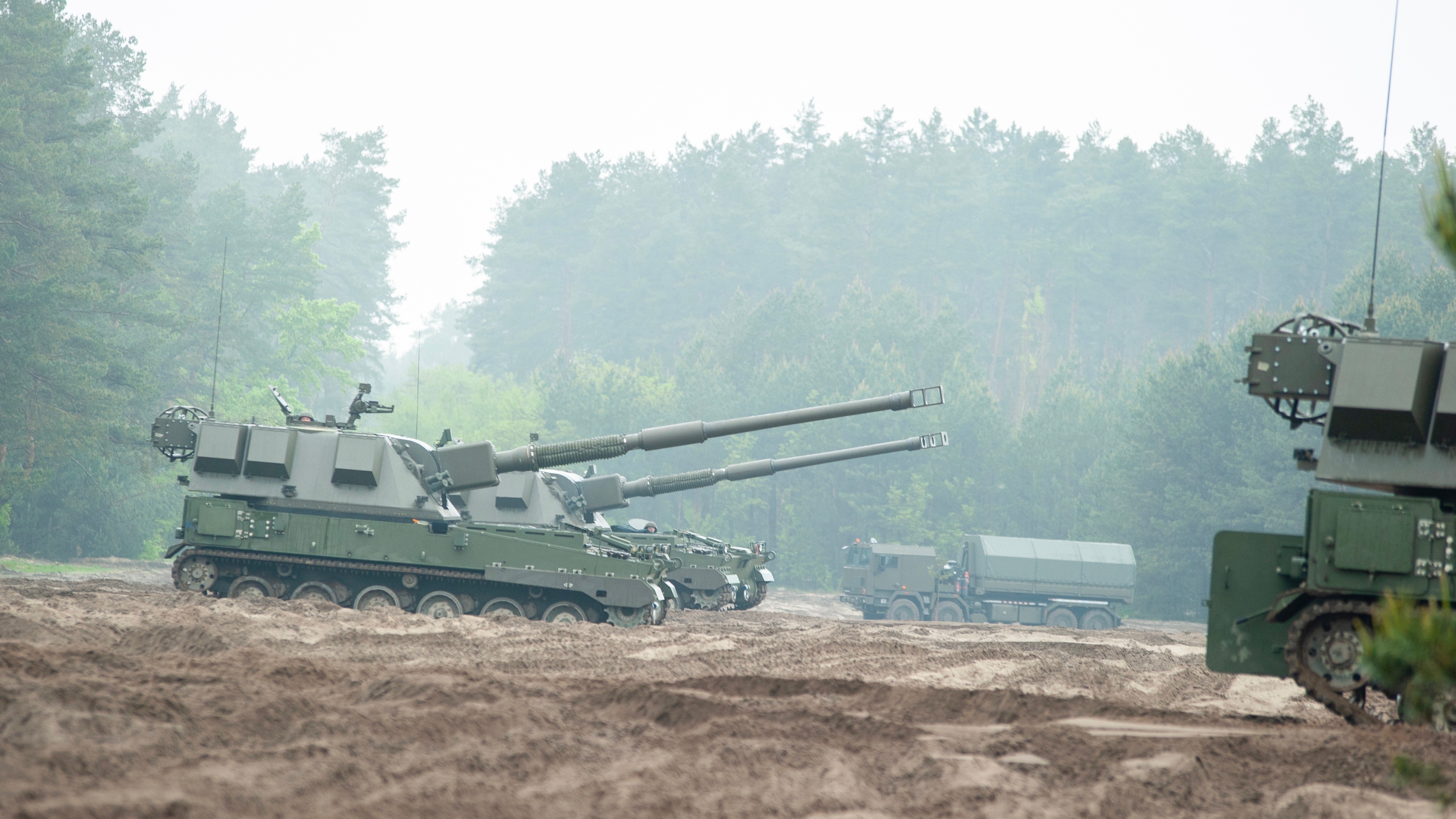
The scope of future Krab procurement is very much dependent on the modernization concept adopted by the Missile and Artillery Component of the Polish military. One of the primary questions here would be: should Poland base its 155 mm sph potential on Krab, or should any steps be made towards acquisition of other, lighter systems? HSW S.A. is also working on a Kryl 155 mm wheeled sph which is much lighter. The Kryl prototype has been involved in field testing since 2015, this included live fire tests at ranges beyond 40 kilometers. The development project managed by the National Centre for Research and Development is still at the stage of defining the scope of required documentation. The final form would depend on arrangements made with the Ordering Party, regarding the final configuration of the system.
For now, it remains too early to answer the question whether and in what proportions (when related to Krab/Regina), Kryl systems would be delivered. Recently the MoD has made no public statements whatsoever, with regards to this platform. Krab/Regina programme is also much more advanced, with deliveries happening now and with their scope expected to be extended beyond 2024.
As the deliveries are currently in progress, one should also refer to the first experiences gathered with regards to use of the Regina system. In general, the assessment is quite positive, there are some suggestions with regards to perfecting the system as a whole. The commanders are suggesting that training activities would be far more rational, if the Krab crews had access to training munitions.
Some of the fire training could be carried out with the use of blank rounds, during the basic training. The troops could then get used to the phenomena emerging when firing the howitzer, including the acoustics, howitzer system vibrations, mechanics, smoke in the interior, filtering system operation depending on the propelling charge, and so on. At the moment the soldiers encounter these phenomena during the live training stage. This means that they need to leave their homebase and go to a training range that offers parameters matching the requirements associated with the Krab sph. This may be avoided, if blank rounds are available.
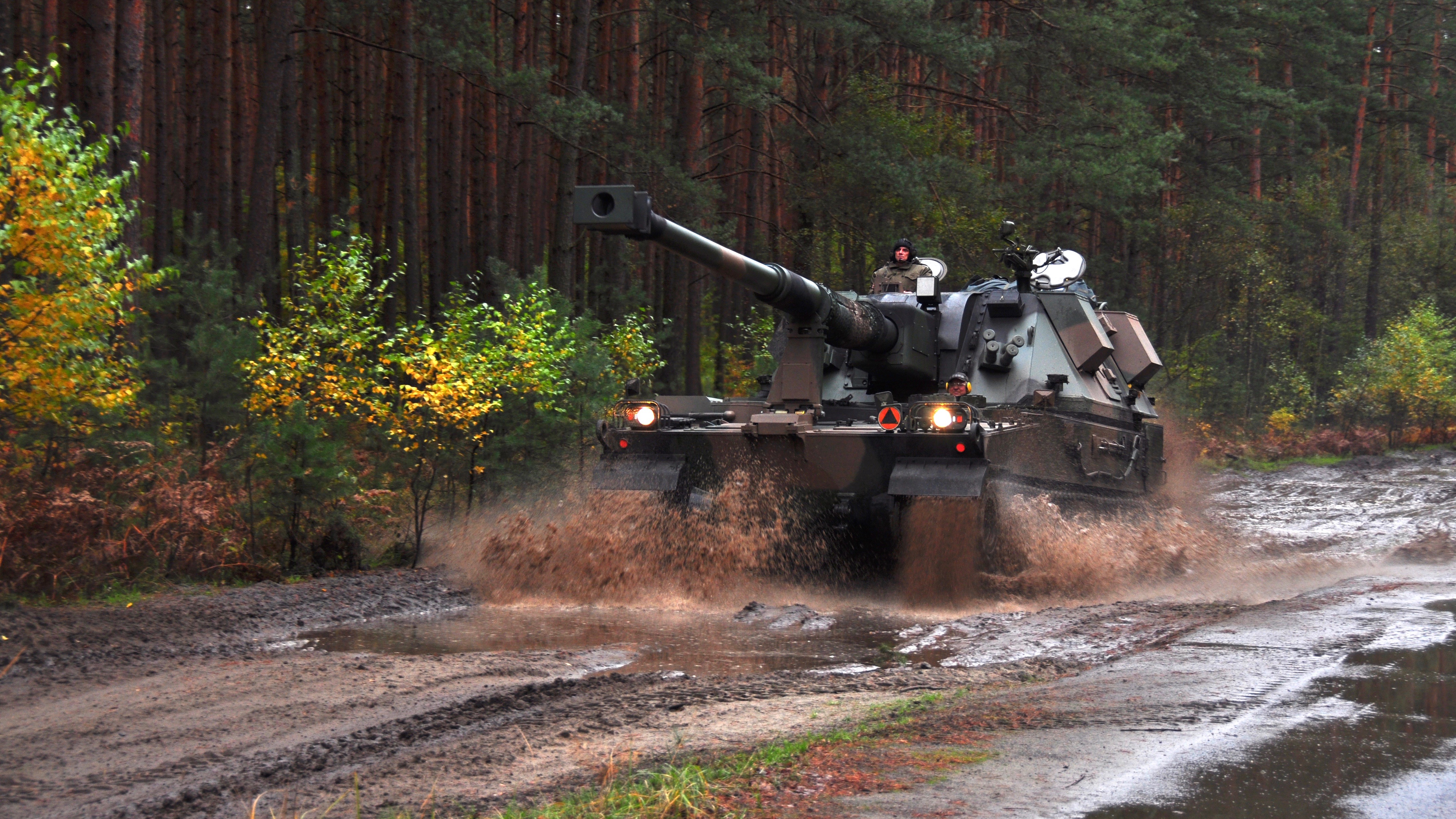
Finalization of the Regina DMO no. 1 delivery is an important point on the programme’s timeline. Manufacturing of the systems also goes through an important transformation now, since platforms delivered by the Koreans or assembled at HSW S.A. with the use of components delivered from Korea, would be replaced by platforms manufactured at HSW in their entirety. The new automated welding line is currently being used to create the hull of the Krab no. 49. Assembly of a portal milling machine is to be finalized by the end of July. The system is to be launched and then used for machining purposes with regards to the chassis. The first completely-Polish Krab sph should undergo the final stage of processing before autumn. Then, it would pass to the finishing phase. The above means that, by the end of 2019, the Krab platform would be manufactured at HSW in its entirety. There is still a formal requirement for the Krab no. 49 to pass type certification. After the above happens, the military would issue a consent to series manufacture further vehicles. There is nothing standing in the way then, for the Krabs destined for the second Regina module, to leave the production hall in 2020. These vehicles will probably become a part of the inventory of the 23rd “Śląski” Artillery Regiment based in Bolesławiec and subordinated to the 11th “Lubuska” Armoured Cavalry Division. The aforesaid element currently operates the WR-40 Langusta, RM-70 and BM-21 rocket launch systems and 152 mm wheeled wz. 1977 Dana self-propelled howitzers (1 squadron). Contrary to the 5th regiment, the 23rd regiment has no HSW-made 2S1 Gvozdika platforms at its disposal - it would be the unit’s debut with the tracked systems.
Jerzy Reszczyński
